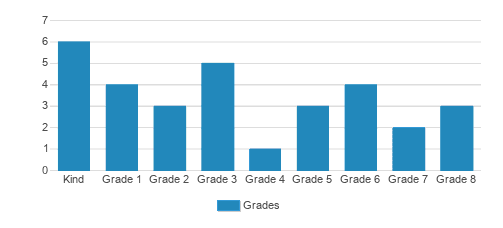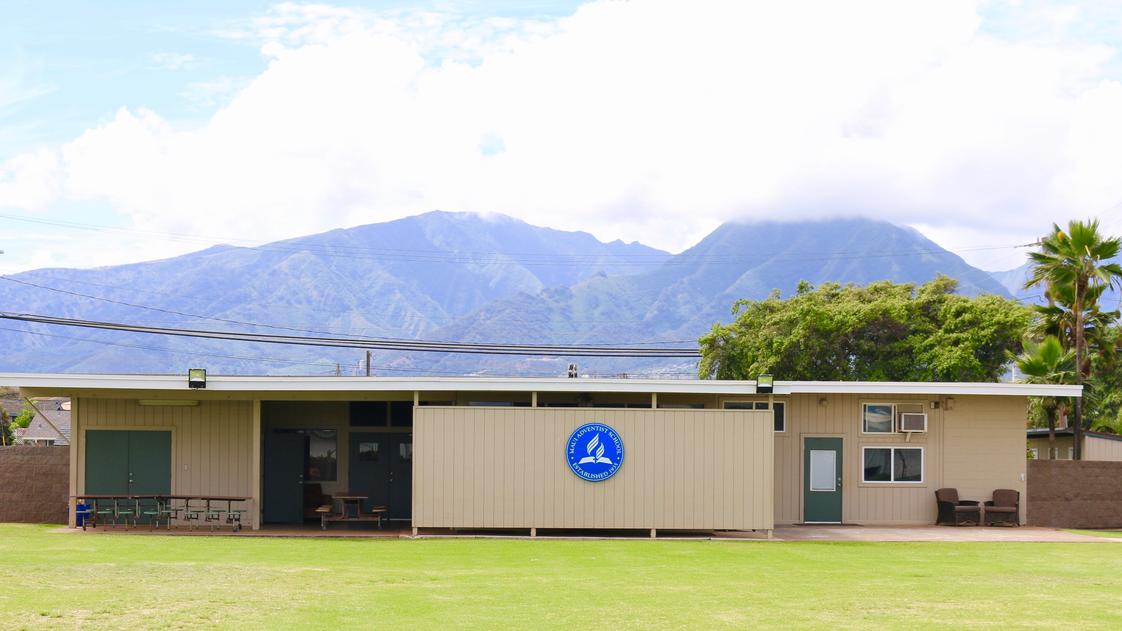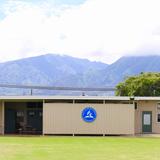Hawaiian Mission Academy Maui is focused on taking education beyond paperwork and tests.
If academic skills are earned, but they don't transfer to the real-life application of that knowledge, is it really still valuable.
HMA Maui uses educational practies such as project-based learning, play-based learning, and interactive, individualized digital learning to build skills.
To add to the pursuit of job and life skills, students learn computer coding, engineering, robotics, and video editing.
Quick Stats (2025)
- Top Ranked HI School
- Grades: Kindergarten-8
- Enrollment: 31 students
- Yearly Tuition: $7,600
- Acceptance rate: 90%
- Average class size: 20 students
- Application Deadline: None / Rolling
- Source: Verified school update
Top Rankings
Maui Adventist School ranks among the top 20% of private schools in Hawaii for:
Category
Attribute
School History
School Overview
School Membership(s)School Assoc.
Religious Affiliation
Grades Offered
Grades Kindergarten-8
Year Founded
1935
School Calendar
Student Body
Total Students
31 students
Student Body Type
Co-ed
% Students of Color
89%
State avg.: 72%
Students by Grade

Academics and Faculty
Total Classroom Teachers
2 teachers
Student : Teacher Ratio
16:1
National avg.: 13:1
% Faculty w/Advanced Degree
50%
Average Class Size
20 students
Classroom Dress Code
Casual
School t-shirts and athletic shorts, khaki shorts and polo shirt on Friday
Tuition and Acceptance Rate
Admission Deadline
None / Rolling
Yearly Tuition Cost
% on Financial Aid
60%
Average Financial Aid Grant
$500
Acceptance Rate
90%
National avg.: 85%
Admissions Director
Seth Katada
School Notes
- We believe in an environment that nurtures growth. In this environment, we believe in the following goals:
- WE BELIEVE THE SCHOOL SHOULD BE: A Garden
- The educational environment is very much like a garden. Just as a gardener plants a variety of seeds in the ground with the goal of building a garden that yields both beauty and the desired produce, a teacher sows seeds of knowledge in a variety of areas meant to produce both the beauty of a good character and the desired produce of life skills and academic success.
- WE BELIEVE THE TEACHERS SHOULD BE: Gardeners
- At Maui Adventist School, we view the role of the teacher as that of a gardener. To sow the seeds of knowledge and try to cultivate an environment conducive to healthy growth. All of the actual growth in both wisdom and in love comes from God, just as the nutrients in the soil and from rain and sun are given by God.
- SO WE CAN HELP OUR STUDENTS BE:
- Open to Growth
- There is a story in the book of Luke, chapter 8, in which Jesus tells a parable about seeds being sown and how different environments impact whether the seeds would succeed or fail in their quest for growth. Some seeds fall along the path where nothing takes root and all the seeds are snatched away. This symbolizes the times when nothing is taken to heart, growth never begins at all. In order to do as much as possible to prevent situations where a student is not receptive to any learning or information, the school has an enrollment process that requires students to demonstrate a desire and ability to grow. This is done through interviews, recommendation forms, and testing. It is essential, not only to the student but to the entire school, that all students are open to learning and to being positive members of the community.
- Ready for Challenges
- A second set of seeds fall on rocky soil where they are received with joy, but roots are not established. When tests and trials come, the seeds are gone. The goal in the classroom is to create curriculum and standards that help the seeds of knowledge take root so that testing and struggle cannot uproot them. It is the goal of each teacher at Maui Adventist School to develop those lessons and to hold to standards that create excellence. This allows students to develop deep roots.
- Aware of Their Value
- The third set of seeds in the story falls into thorns. These thorns block the sun and wilt the new growth until it vanishes. This illustration represents when the worries of life and obsession with wealth choke out the growth the seeds need. In our modern world, it is incredibly common to see worries, stress, and the pressure to produce a certain image create depression and anxiety. Our goal is to provide mentorship, teach life skills, and, most importantly, provide spiritual development opportunities to combat these pressures. It is essential that our children discover that they were created as beautiful, meaningful additions to the world. They must find that they are beautiful as they are and there is nothing they can acquire to add to that. The understanding that God is by their side as an ever present partner, waiting to help them change the world, can point them to a path of hope, healing, and purpose.
- Given Every Opportunity to Grow
- The last set of seeds fell in fertile soil and grew with wonderful results. The same is true in education. When each of the goals is successfully met, the product is fertile, productive soil. It is a safe, encouraging, positive environment that nurtures learning and growth. This environment takes a lot of time, energy, and work to cultivate but, once it is present, amazing things happen. The environment places students in a mindset open to the beautiful future God has in store for them. God is the One who provides the nutrients, creates the growth, and produces the fruits within the student. The teachers are merely the gardeners working the soil.
- Actively Involved in Making the World a Better Place
- The fruits that grow from these thriving plants illustrate the character traits and the loving kindness that flow from students who are filled with purpose. To encourage the development of these fruits, the school provides frequent and diverse types of service within the community. From making blankets for the cancer clinic, to spending time with our kupuna, to helping restore historical sites, students are involved in putting their talents to work for others. The knowledge students have absorbed, the wisdom they have developed, and the love that has grown within them spill out into acts of kindness in the community.
Source: Verified school update
Frequently Asked Questions
How much does Maui Adventist School cost?
Maui Adventist School's tuition is approximately $7,600 for private students.
What schools are Maui Adventist School often compared to?
Maui Adventist School is often viewed alongside schools like Emmanuel Lutheran School by visitors of our site.
What is the acceptance rate of Maui Adventist School?
The acceptance rate of Maui Adventist School is 90%, which is higher than the national average of 81%.
What is Maui Adventist School's ranking?
Maui Adventist School ranks among the top 20% of private schools in Hawaii for: Oldest founding date.
When is the application deadline for Maui Adventist School?
The application deadline for Maui Adventist School is rolling (applications are reviewed as they are received year-round).
School Reviews
Endorse Maui Adventist School. Endorsements should be a few sentences in length. Please include any comments on:
- Quality of academic programs, teachers, and facilities
- Availability of music, art, sports and other extracurricular activities
- Academic or athletic awards
Recent Articles

A Parent's Guide To Understanding High School Teaching Methods
This comprehensive guide helps parents navigate the various teaching methods used in today's high school classrooms. By understanding these approaches, you'll be better equipped to support your teen's learning journey, communicate effectively with teachers, and create a complementary learning environment at home.

February 08, 2025
Social Emotional Learning: Education's Hidden SymphonyA musician's perspective on Social Emotional Learning reveals how this educational framework orchestrates success through five essential emotional competencies.

January 24, 2025
A Roadmap For Starting A Private SchoolUse this roadmap as a set of talking points with your trusted mentors and professionals to start the private school of your dreams. You're not alone. Over the years, hundreds of folks like you have had the same dream. From Quintilian to Maria Montessori to Lucy Madeira Wing, visionary educators have established schools to teach according to their beliefs and methodologies.



















